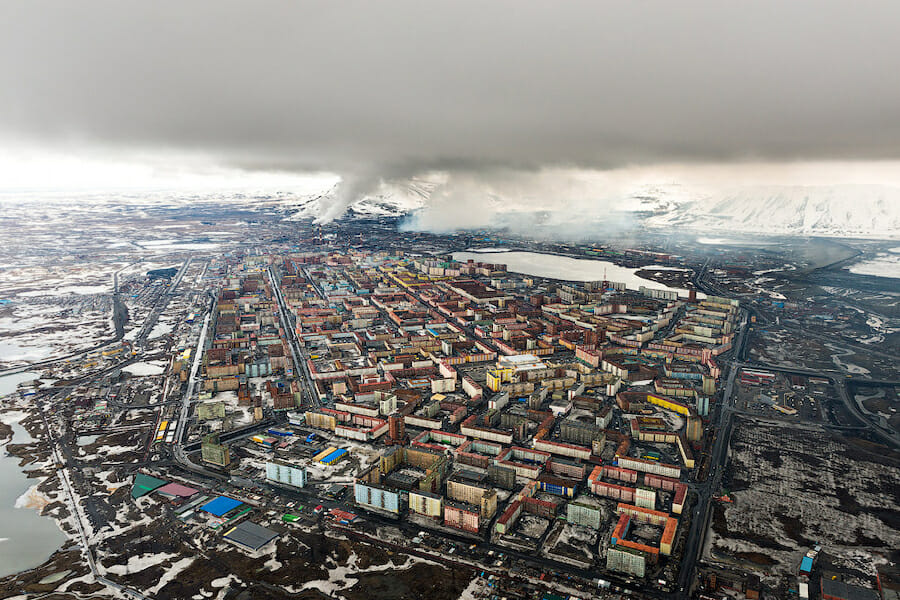
The global pandemic has accelerated a number of societal trends. Yet, perhaps the most notable acceleration has taken place in political attitudes on tackling climate change. This has been heightened by the lead-up to COP26 slated to happen in Glasgow in November, with increasing attention falling on not just the policies of governments but action undertaken by the private sector to address climate change. The 2021 United Nations Climate Change Conference will set targets and assess the progress of UN member states in meeting their climate change targets.
One country in which there is likely to be particular interest is Russia. While many Russian businesses have begun paying more attention to their environmental and sustainability policies, the country has not fully escaped its post-Soviet reputation for environmental degradation. As one of the world’s leading producers of fossil fuels behind Saudi Arabia and the United States, Russia has a particular challenge in decarbonizing.
Russia’s key challenges are air and water pollution. It is estimated that less than one-half of Russia’s population has access to safe drinking water. In 2020, Russia measured its highest levels of air pollution in sixteen years. In November, the Hydrometeorological Centre of Russia recorded 171 “high” or “extreme” instances of pollution, the highest since data became available in 2005. “Extreme” pollution refers to concentrations of pollutants between 20- and 50-times allowable levels with the potential for persistent smells and acid rain. Unsurprisingly, a 2019 poll by the Levada Center, Russia’s leading independent pollster, indicated that 48% of Russians see pollution as one of the greatest threats to humanity. This compares to 42% who mentioned terrorism.
Beyond the overall picture, there are some particularly concerning examples. The Arctic city of Norilsk is the most polluted in Russia. The city is home to considerable nickel deposits and the smelting of this nickel ore is responsible for severe pollution. According to NASA, 1% of the world’s sulfur dioxide emissions are from Norilsk. The vast majority of inhabitants rely on income from the owner of the mines, Norilsk Nickel, of which Roman Abramovich has been a minority shareholder. This leads to a situation in which it is against the interests of inhabitants to raise environmental or health concerns for fear of losing their jobs. In May of 2020, a fuel spill from a storage tank owned by the company failed, leading to tens of thousands of tons of oil being released into the environment. It is unlikely that the Russian government will see any incentive to intervene, given that it is thought that the company amounts to roughly 2% of Russia’s GDP.
The disastrous impact of irresponsible industrial activity can also be seen in other parts of Russia. The city of Tolyatti, known as the home of the once-popular Lada car, was previously seen as an exemplar city by Soviet leaders, but today suffers from excessive ammonia pollution said to have originated from the local chemical plant, TogliattiAzot, which is owned by father-and-son duo Vladimir and Sergey Makhlai. As is the case with many Russian companies, the company has its roots in the post-Soviet sale of state assets. Vladimir Makhlai became Director of TogliattiAzot in 1985. Following the collapse of the Soviet Union, Makhlai used procedures designed for small businesses with fewer than 200 employees and less than 10,000 rubles of assets to privatize the plant. At the time, the plant had 5,000 employees and assets worth hundreds of millions of rubles.
Today, TogliattiAzot is arguably best known for Vladimir Makhlai’s alleged mismanagement of the firm. The plant’s discharge into the river Volga is said to be well beyond permissible limits with reported copper levels of nearly six times the legal limit. In 2015, a section of one of its ammonia pipelines burst, releasing unknown quantities of poisonous gas into the atmosphere. Three years later, 3,000 cubic metres of gas exploded causing a significant fire. However, Makhlai strongly denies any wrongdoing.
While many Western-facing Russian businesses are beginning to take their environmental responsibilities seriously, the country continues to suffer from the consequences of lack of accountability and poor governance. Russia’s involvement in the upcoming COP26 summit will be worth watching in the coming months.
If you're interested in writing for International Policy Digest - please send us an email via submissions@intpolicydigest.org
"difficult" - Google News
April 02, 2021 at 06:13AM
https://ift.tt/3u98vey
COP26 May Prompt Difficult Questions for Russian Companies - International Policy Digest
"difficult" - Google News
https://ift.tt/2VWzYBO
https://ift.tt/3d5eskc
Bagikan Berita Ini














0 Response to "COP26 May Prompt Difficult Questions for Russian Companies - International Policy Digest"
Post a Comment